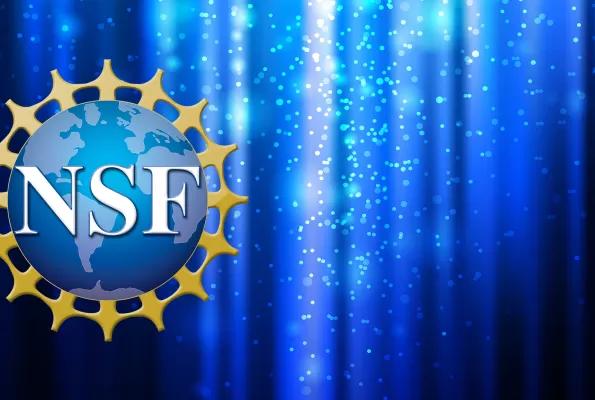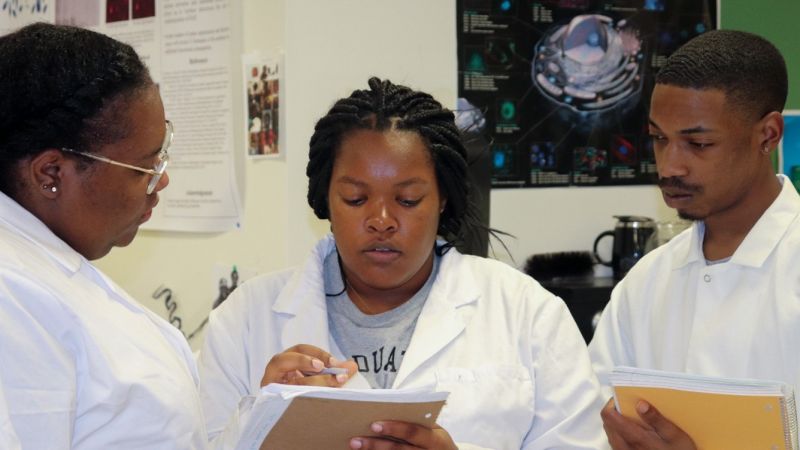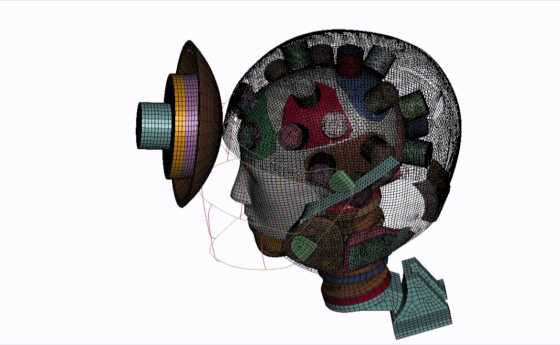
Researchers apply COVID-19 lessons to prevent future pandemics
Though other pandemics have affected the U.S. over the past 100 years, COVID-19 has been compared most often to the 1918 influenza pandemic in terms of its impact. Both events overwhelmed the health care system and drastically altered everyday life across the country.
Decades of NSF research led to innovations such as polymerase chain reaction-based DNA analysis and the bacterial enzyme CRISPR. Building on this work, scientists and engineers were able to quickly respond to the country’s immediate needs -- discovering how the virus works and identifying methods to track its spread. Their contributions also laid the foundation for the rapid development of treatments and vaccines to protect people from the virus.
Since May 2020, the U.S. National Science Foundation advanced COVID-19-related research efforts by distributing nearly $200 million in funding for more than 1,000 projects related to the virus and its impacts thanks to the support of Congress and the CARES Act. This helped biologists, epidemiologists, computer experts, physicists, engineers and social scientists developing solutions to address all aspects of the pandemic.
Helping scientists and engineers return to research
While many scientists and engineers worked to respond to COVID-19, many more were forced to halt ongoing and valuable research due to campus and lab shutdowns. Among the hardest hit during the pandemic were women -- who disproportionately took increased responsibilities in childcare and other family responsibilities, early-career researchers, researchers from underrepresented groups and researchers at minority serving institutions. NSF is helping scientists and engineers resume their research through RAPID funding grants, extended deadlines and other approved funding methods.
The Computer and Engineering and Information Science directorate offered up to two years of emergency funding under the Computing Innovation Fellows program for recent and soon-to-be Ph.D. graduates in computer and information science and engineering. NSF supported 59 fellows in 2020, of which 52 percent are women. Support for a second cohort of up to 70 new fellows is scheduled to be awarded in late summer.
With labs and facilities closed, hands-on biology research was essentially impossible for many postdoctoral researchers. NSF offered to extend funding for those who simply need to make up for lost time to get their research back on track and allowed recent awardees to push back the start of their awards until labs reopened.
NSF launched the Build and Broaden program to support transformative social, behavioral and economic science research, training, and capacity at minority-serving institutions throughout the country. The program is increasing proposal submissions from minority-serving institutions by fostering research partnerships centered on those institutions, growing their scientific infrastructure and capacity. To date, the program has received more than 100 proposals.
With the impact of the pandemic extending into a second year, NSF is developing additional ways to mitigate the effects on research. Thanks to Congress' passage of the American Rescue Plan, existing mechanisms will be used to distribute $600 million in funds to those most severely impacted and most vulnerable.
Preparing for and preventing future pandemics
Pandemic-related work continues today. NSF is building on the successes of the past year to put the U.S. in better position to prepare for and respond to pandemics in the future. The widespread damage caused by COVID-19, along with a series of smaller disease outbreaks in the past 20 years that were contained before spreading globally, serves as a reminder that scientific and health communities must remain alert to prevent pandemics from becoming more frequent.
NSF, with its multi-disciplinary reach and history of supporting fundamental research, is uniquely positioned to drive efforts to prepare for and prevent future pandemics. This vision includes incorporating lessons learned in the response to the COVID-19 pandemic. Many researchers have already found ways to apply COVID-19 work to future pandemic preparation, such as the team that dated the origin of the virus spread in Wuhan, China, before the first human cases were detected. Their method using molecular dating tools and epidemiological simulations can be applied in response to future pandemics.
While scientists and engineers continue to propose new research projects to address aspects of pandemics, there is also a long-term strategy that leverages the combined efforts of experts across multiple scientific disciplines to address public health challenges. The Predictive Intelligence for Pandemic Prevention program will bring together experts from diverse fields to develop broader plans and the technology and knowledge to combat future pandemics.
This program involves NSF's Office of International Science and Engineering and four NSF directorates: Biological Sciences; Computer Information Science and Engineering; Engineering; and Social, Behavioral and Economic Sciences. The initial areas of focus include rapid detection and assessment of emerging pathogens; monitoring the environment for disease transmission; understanding human behavioral and social processes and their impact on transmission and spread; and leveraging machine learning for preparedness.
The value of decades of research was clearly demonstrated in the scientific community’s response to COVID-19. A a broad scientific search for innovative approaches will strengthen the U.S. defense against future pandemics and contribute to long-term prosperity.







